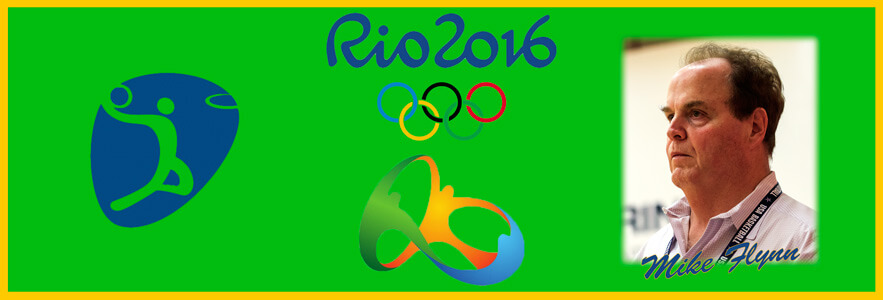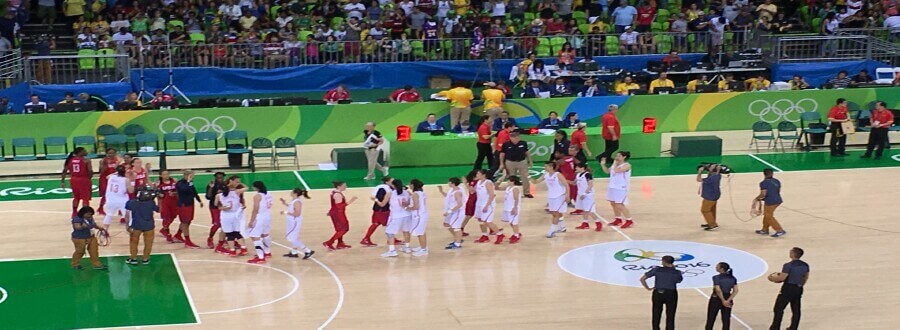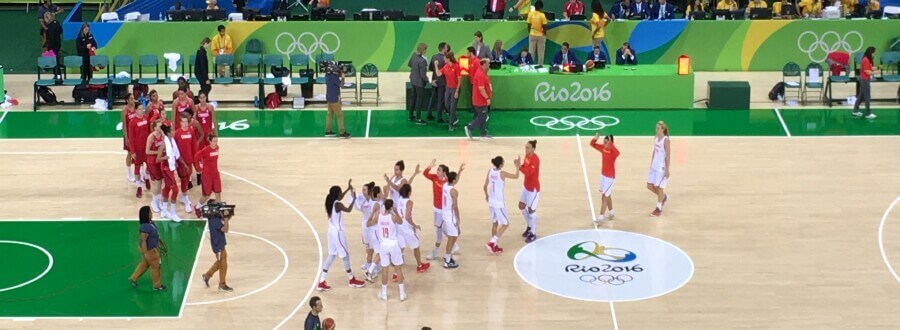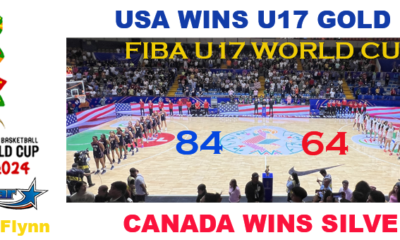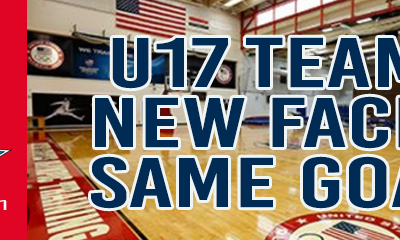RIO DE JANEIRO – It only took less than four minutes to determine how fast the USA Women’s Olympic basketball team would get to 100 points when Tina Charles scored her sixth point of the game at the 6:08 mark for a 10-3 lead over China. The rout was on and 40 Team USA assists later it was a 105-62 final and into the Olympic semifinals on Tuesday against Pool A 4th place finisher Japan at 5:45 p.m tomorrow at Carioca Arena 1 at the Rio Olympic Park.
It was another case of an international team like China putting out on the floor an array of mostly younger players to compete against this veteran USA women’s basketball team. Three USA players are doing their fourth Olympics (Sue Bird, Diana Taurasi, Tamika Catchings). China, which finished at the London Olympics in 6th place, returned only three players from their 2012 roster which all play in their own CBA League in China. It was a mismatch despite the abundance of hoop talent to draw from the world’s biggest basketball population hotbed.
“You have to be brave,” said China Women’s Olympic head basketball coach Tom Maher. “They’re (USA) just totally, physically overwhelmingly superior and incredibly skillful. The basketball IQ is huge. And, all those guys play internationally.”
When the world discovered that basketball was big in China before and after the 2008 Beijing Olympics it was assumed that just on population and sport discipline alone the Chinese would begin to create a deep and talented pipeline. China went from 9th in 2004 Athens to 4th in 2008 Beijing. The 2010 FIBA u17 World Championships in Toulouse, France featured a lot of interesting parts, mostly bigs, that never made it to the 2012 or 2016 teams. In London it was a veteran squad again with few youth.
This 2016 Olympic edition returned only three players from London (Li Shanshan, Song Gao and Nan Chen). Despite the pipeline bodies and roster changes, the same issues of athleticism and basketball IQ rise up when it’s time for international competition. To combat this the Chinese Basketball Federation (CBA) sought out Maher who guided the rise of Australian Women’s Basketball into 2000 to try and rebuild and change the Chinese women’s basketball culture.
“I was surprised initially (when I got there), but when I saw all the players here and invested which way do you go?” answered Maher. “What happened, China for whatever reasons, maybe it was unavoidable, didn’t bring new talent into the team and when the star players retired there was a drop-off of the talent on the team. The other girls that were the support crew weren’t good enough to go into being the talent. After the first year you this is going nowhere. We just gotta rebuild. We’ve turned people over every year. Who every takes the job next time there’s a lot to work with.”
This China team had to play in the FIBA Women’s Olympic Qualifier last month in Reze, France after losing to Japan in the Asia Women’s Championship. China was strong enough to get 3rd place in Reze and make it to Rio. The stars to propel them were 6-0 forward Ting Shao, 6-5 forward-center Mengran Sun and 6-5 veteran post Nan Chen. Chen came back from retirement but if this is the China Olympic roster is there more talent back home? Is this China’s best?
“No, there’s definitely still players that’s not on the Chinese National team that are really good,” said Charles who finished with 18 points and now plays for WCBA power Xinjiang after five season in Europe. “There are players who were the Chinese National team in 2012 that could’ve been on this team. I think you have a lot of great talent (there). They wake up early, do everything single thing the coaching staff tells them to do. So they are definitely coachable and they want to get better and want to be on the same playing field as any other country.”
This may be Coach Tom Maher’s last go with the Chinese National Women’s Team as these type of coaching contracts usually run on four year cycles. Maher was the head coach for the 1996 (Bronze) and 2000 (Silver) Australian Women’s Olympic teams with perennial starts Penny Taylor and Lauren Jackson. Maher then coached the New Zealand squad in 2004. In 2008 Mahan did his first stint in China accepted the reigns of the 2008 Chinese Olympic team which finished 3rd in Beijing. His next stop was the Great Britain team for the 2012 London Olympics and almost got GB their first Olympic win. The next cycle for 2020 in Tokyo is still out there to be decided.
“I don’t know, probably is,” said Maher discussing his future in China. “It’s up to them (Chinese Basketball Federation) really. You know you got a job for four years. You do that job and then see if another one is there. I look forward to whatever comes around. I am extremely for the opportunities. I hope something comes around, I am not a retiring sorta guy.”
“China is a fantastic place to coach,” Maher continued. “You can really make a difference there. It’s not like you get an all-star team and manage them and run a few plays. You can actually teach skills and concepts. And if you get enough time to work with them you can make a huge difference. If you’re a teaching type of coach you a lot more fulfillment in that sort of environment than taking an all-star and spending a weekend with them.”
THE BIG ASSISTS: Team USA’s staggering record mult-100 point games was eclipsed by the 40 assists dealt out against China. In 2012 the USA set the record against China with 33 and broke that record against Senegal here with 36. Today is was 40. It was like every other possession or fast break had a recipient.
“The USA now holds the Olympic record for 40 assists and it gets better from there,” said Catching who played in the past for the Guangdong Dolphins. “We play without selfishness, we move the ball, and we knock down shots, not only on the offensive end and that translates to the defensive too. (It shows) just how well we’re playing together, getting steals, being able to get out running in transition. A lot of them (assists) came in transition being able to throw the ball up the floor.”
“Finishing is the most beautiful thing to watch” said Maya Moore. “We have some of the best finishers in the world. Just because you’re typically been a finisher doesn’t mean you’re automatically going to be in every game. But you step up and do it like we did, for each other. “
THE BIG HIT: “It was just a minor incident. I put my hand up and her head ran into it,” said Catchings mentioning how teammate Elena DellaDonne was hit in warmups and nursed an ice pack on her eye-cheekbone and did not play against China. “She’s fine, she’s alright. Not like we needed her today. We really need her for the next round and going into the rest of the tournament.”
NEXT GAME: The USA Women’s Olympic team takes on a feisty Japan which used its speed, quickness and three-point shooting to upset France 79-71 in the last game of Pool A competition. France still retained 2nd place and plays while 3rd place Turkey which faces Spain.
“China and Canada definitely prepared us for Japan that spreads the floor, always cutting always looking the open man,” said Charles. “You can’t make any mistakes, they capitalize on mistakes you make on defense. We saw them play against Australia and they gave them a great run.”
POOL B SHOWDOWN: In similar fashion to Pool A, the two teams, Canada and Spain entered the last game with identical 3-1 records. The game lived up to the level of competition with Spain winning a tough game against Canada 73-60. Spain drew a small lead, almost blew the game open in the 3rd quarter before Canada cut it to 49-47 at the end of three quarters. Spain showed their experience and opened it back up to 12 points midway in the fourth to secure their next opponent in a physical Turkey (Tuesday, 1:30pm, Carioca Arena 1) which lost to France in the final of the FIBA WOQ tournament in June.
“We were right in there with them for a long stretch until the 3rd quarter when they went on an 11-0 run,” said Canadian Olympic Coach Lisa Thomaidis whose team gets France in the other Tuesday Medal Round game at 9:15 p.m. (Carioca Arena 1). The winner faces the USA monolith in the semifinal. “We’re moving onto the quarters and got a chance to do some very special things here. It’s going to be able to leave this one behind and prepare for France.”
“They’ve be fired up. They’ll be ready for France,” said Thomaidis. “Several of our players play in France playing in the pro league they know those players well. They have a “hockey” rivalry with them and they’ll be hungry.”
Canada avoids the opening round quarterfinals game vs. the USA they had to face in 2012. Australia also had to play the USA in the semifinals bracket in 2012. Missing from the list of 2012 Olympic medal round entries is Russia which failed to qualify for the 2016 Rio Olympics.
Undefeated Australia (5-0) vs Serbia (3-2) starts off Tuesday’s Medal Round games at 10 a.m. at the Carioca Arena 1 inside the Olympic Park. All prior games were played at the very nice but very distant Youth Arena an hour bus ride (for fans) north of the Olympic Park. After the Aussie game is Spain-Turkey followed by the USA-Japan and France-Canada. There is a day off on Wednesday with semifinals on Thursday.
Mike Flynn is owner and operator of Blue Star Basketball and U.S. Junior Nationals. He is a National Evaluator and publishes the Blue Star Report which ranks the top 100 high school girls basketball players in the nation. He also serves as Secretary of the Middle Atlantic District AAU, National Chair for AAU Lacrosse, Consultant to Gatorade for girls basketball, member of the McDonald's All–American selection committee, & Consultant for Nike Global Basketball.

